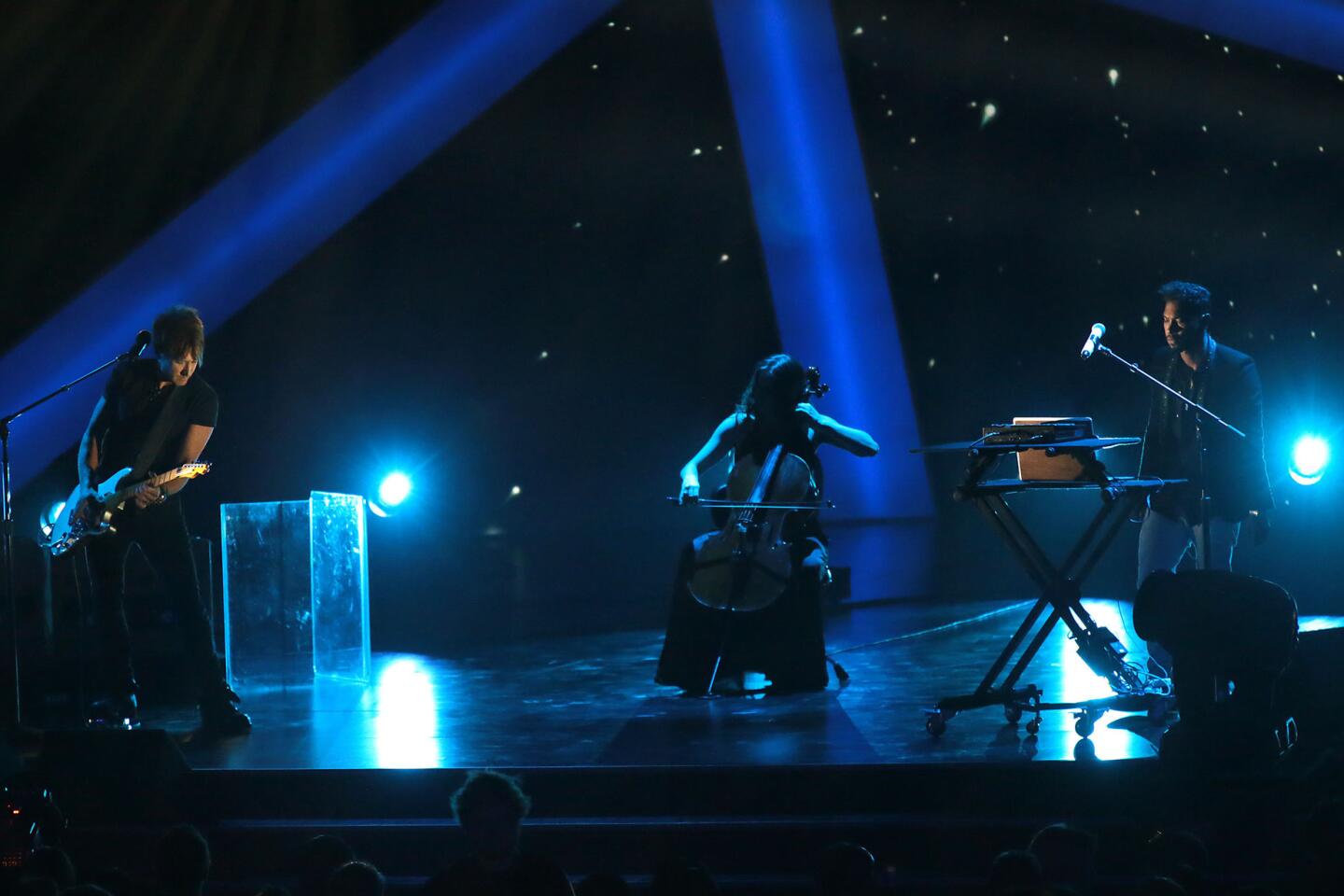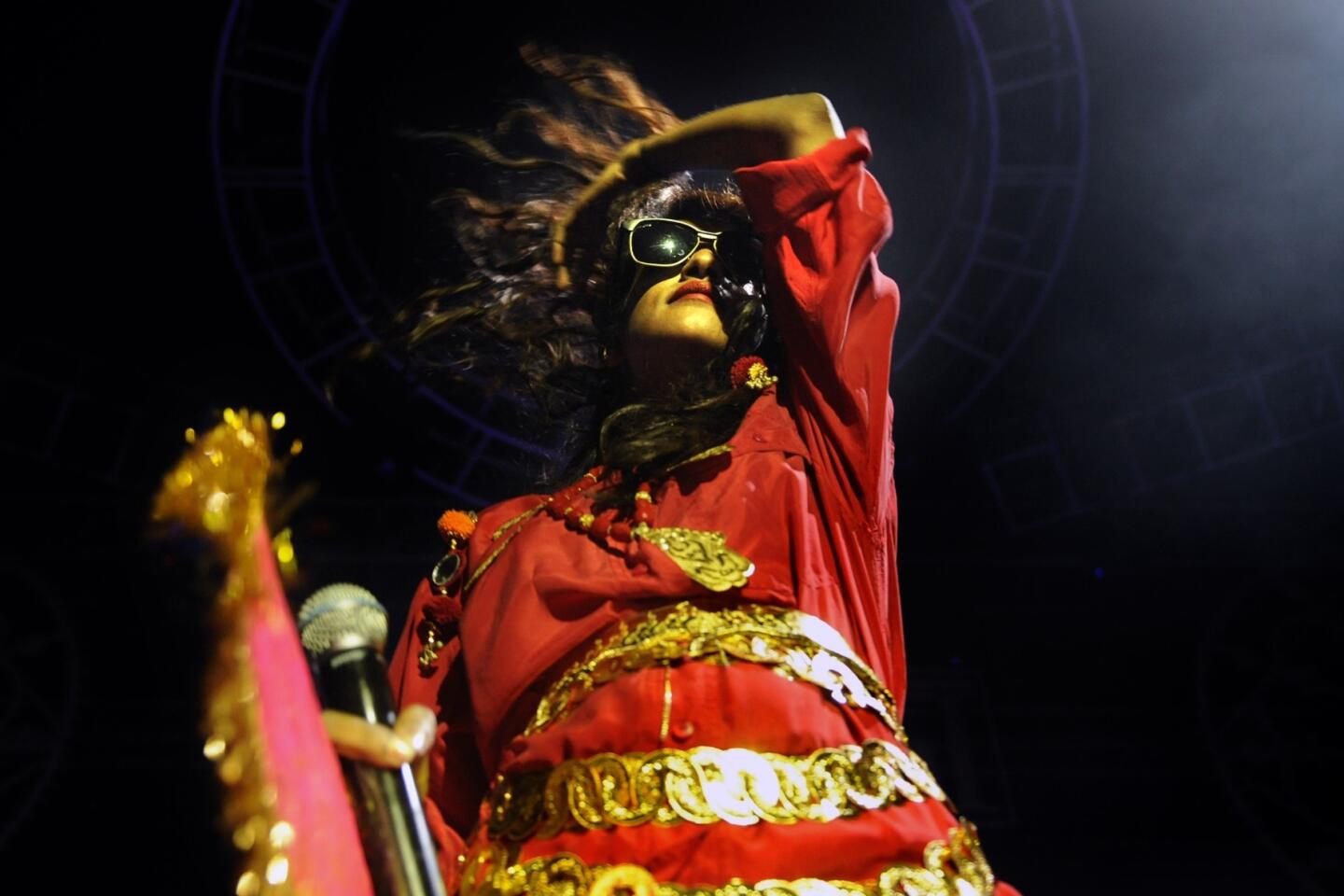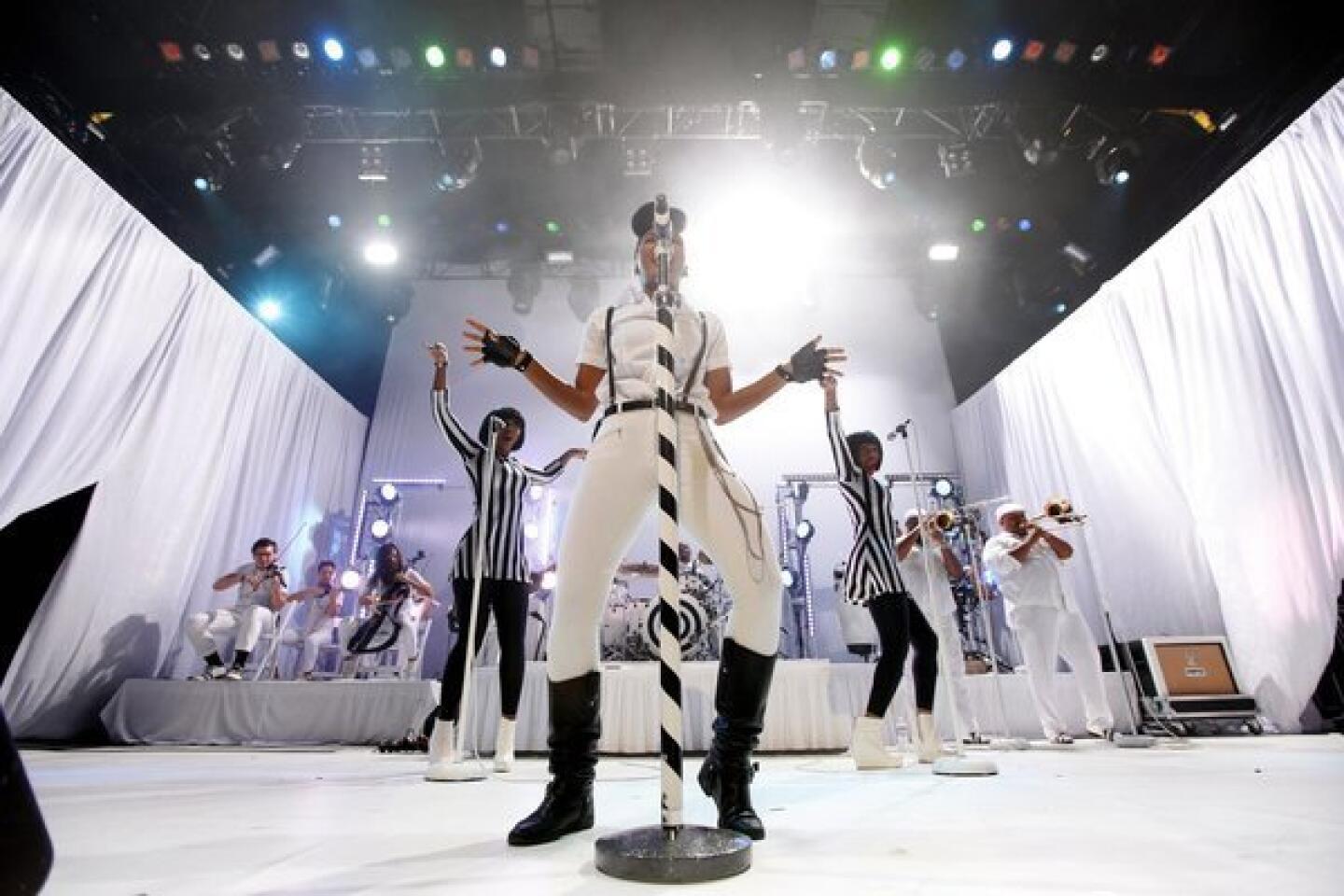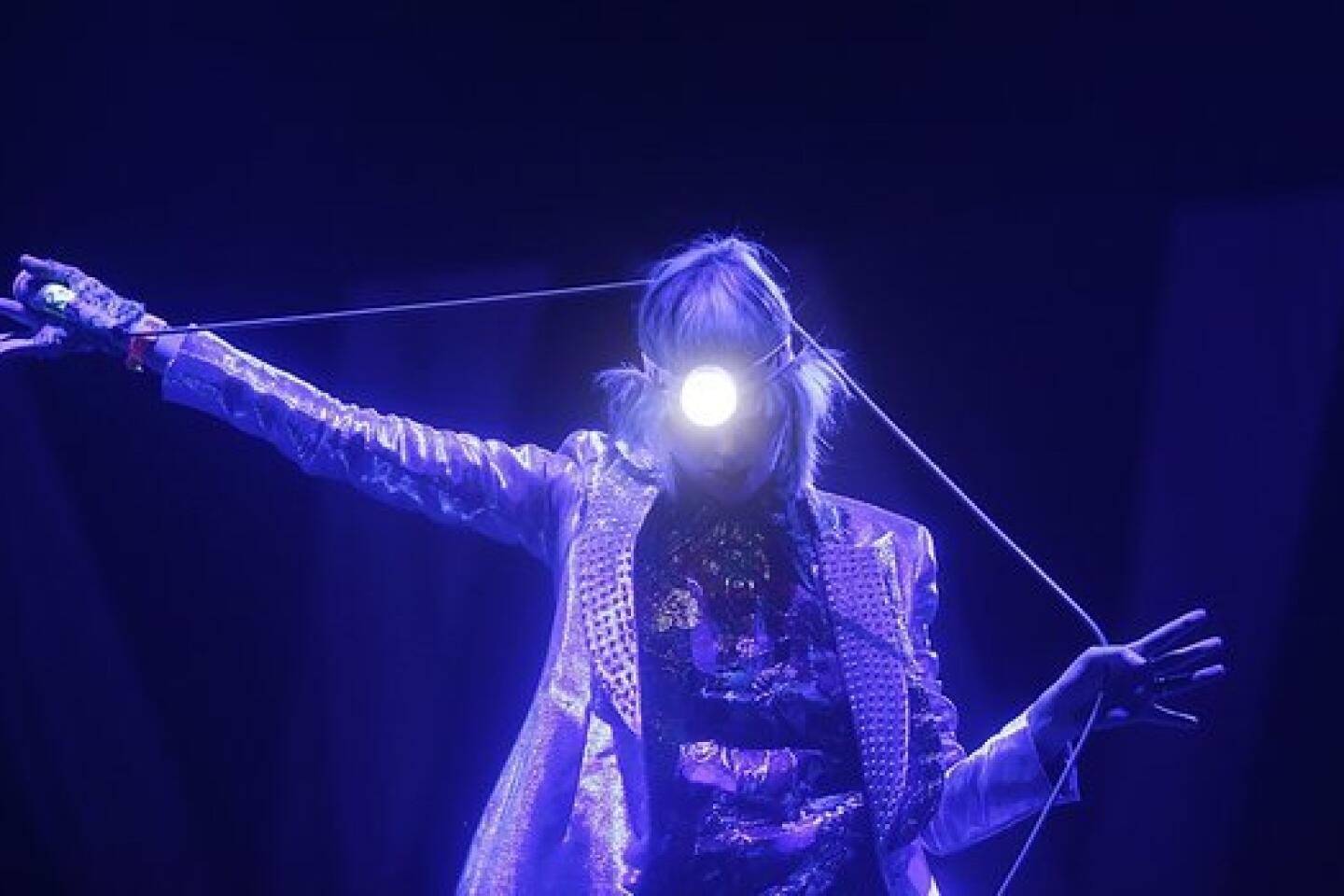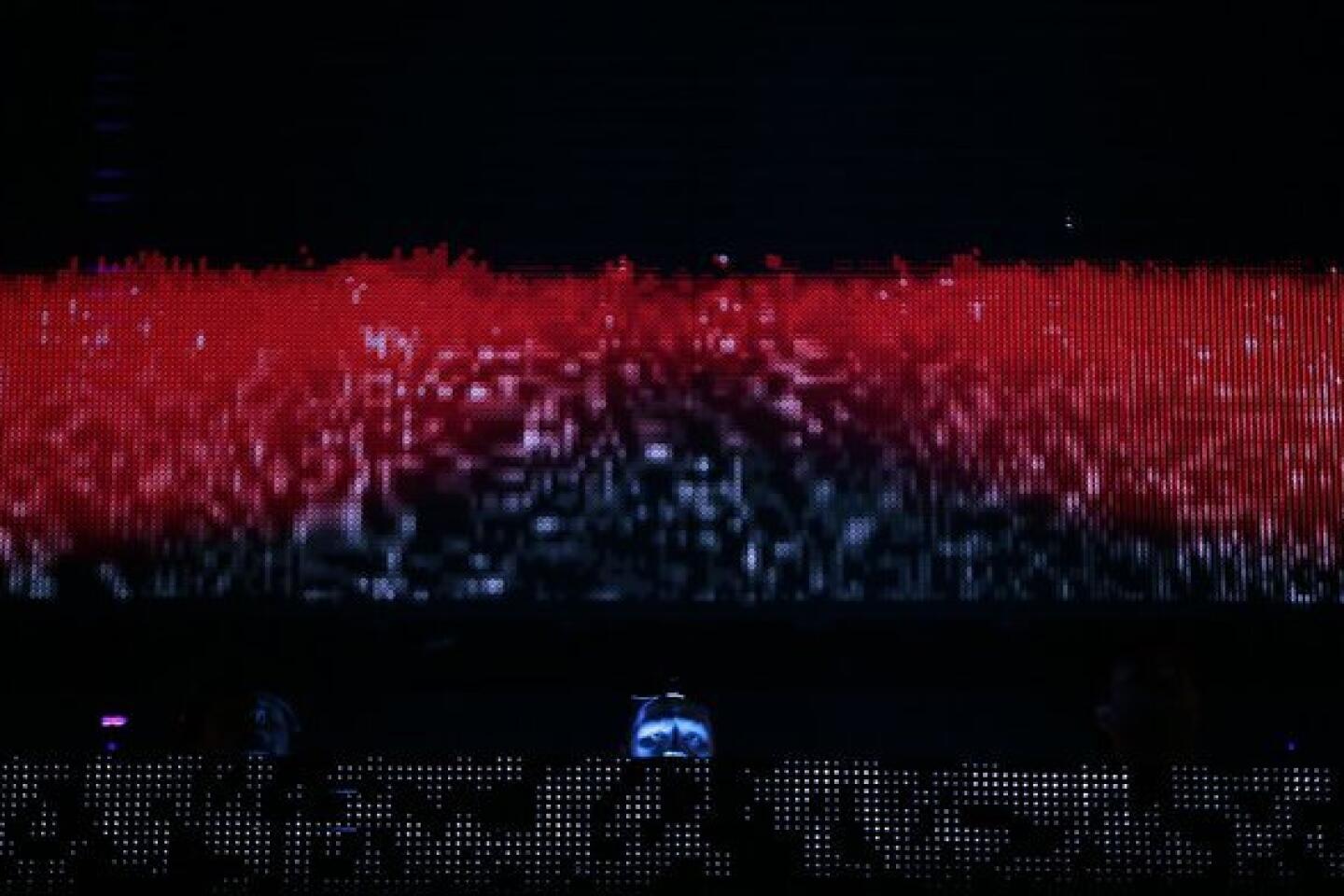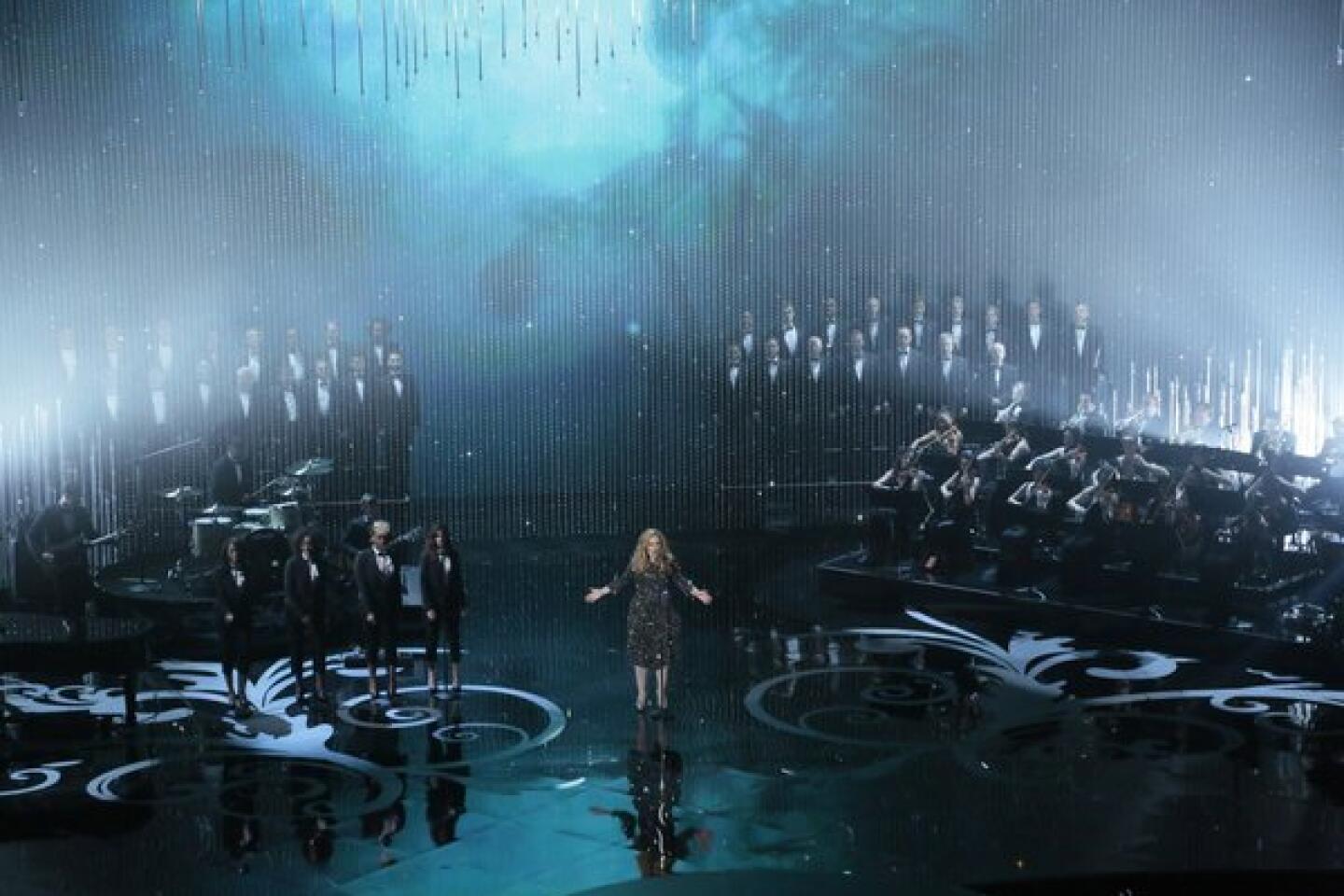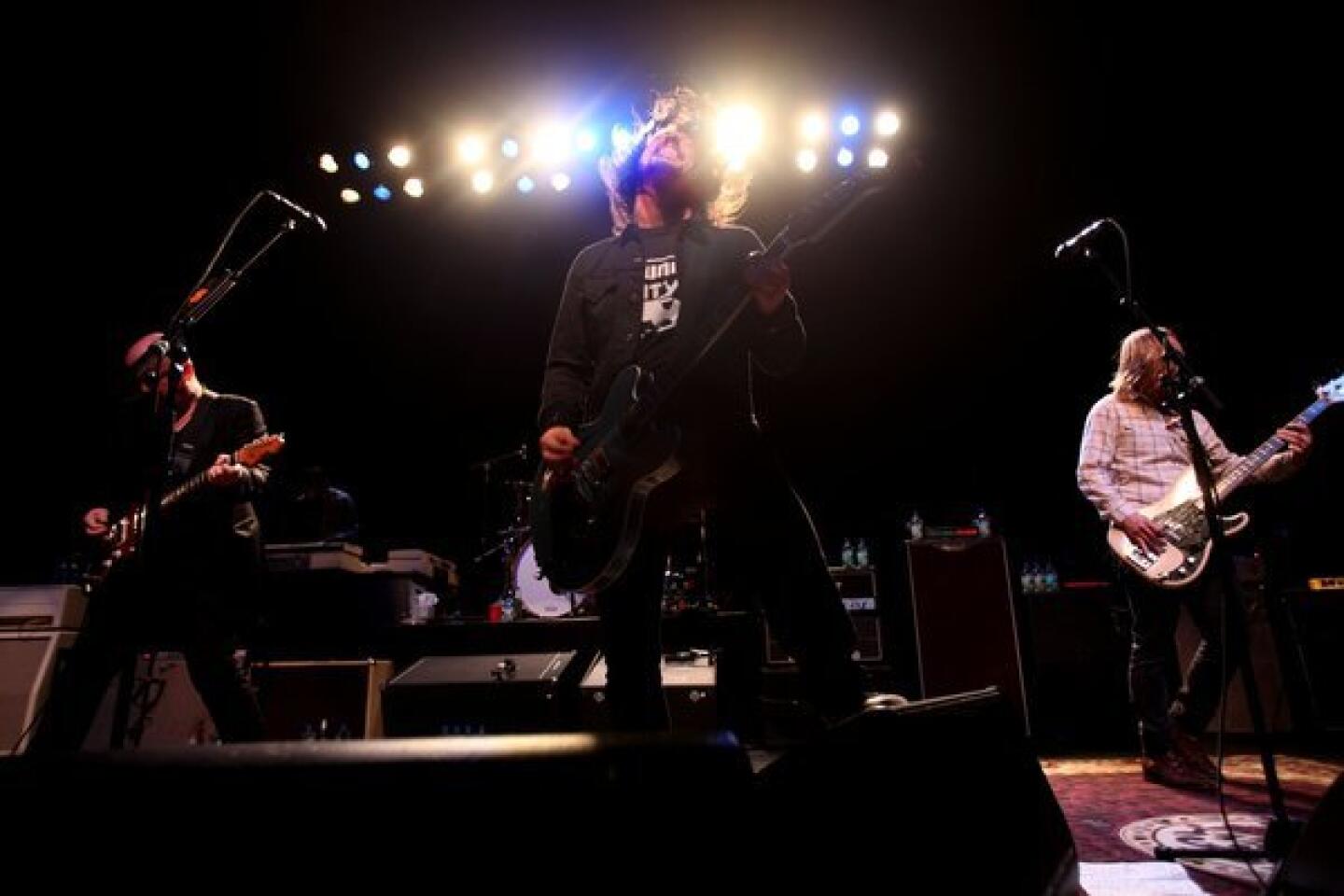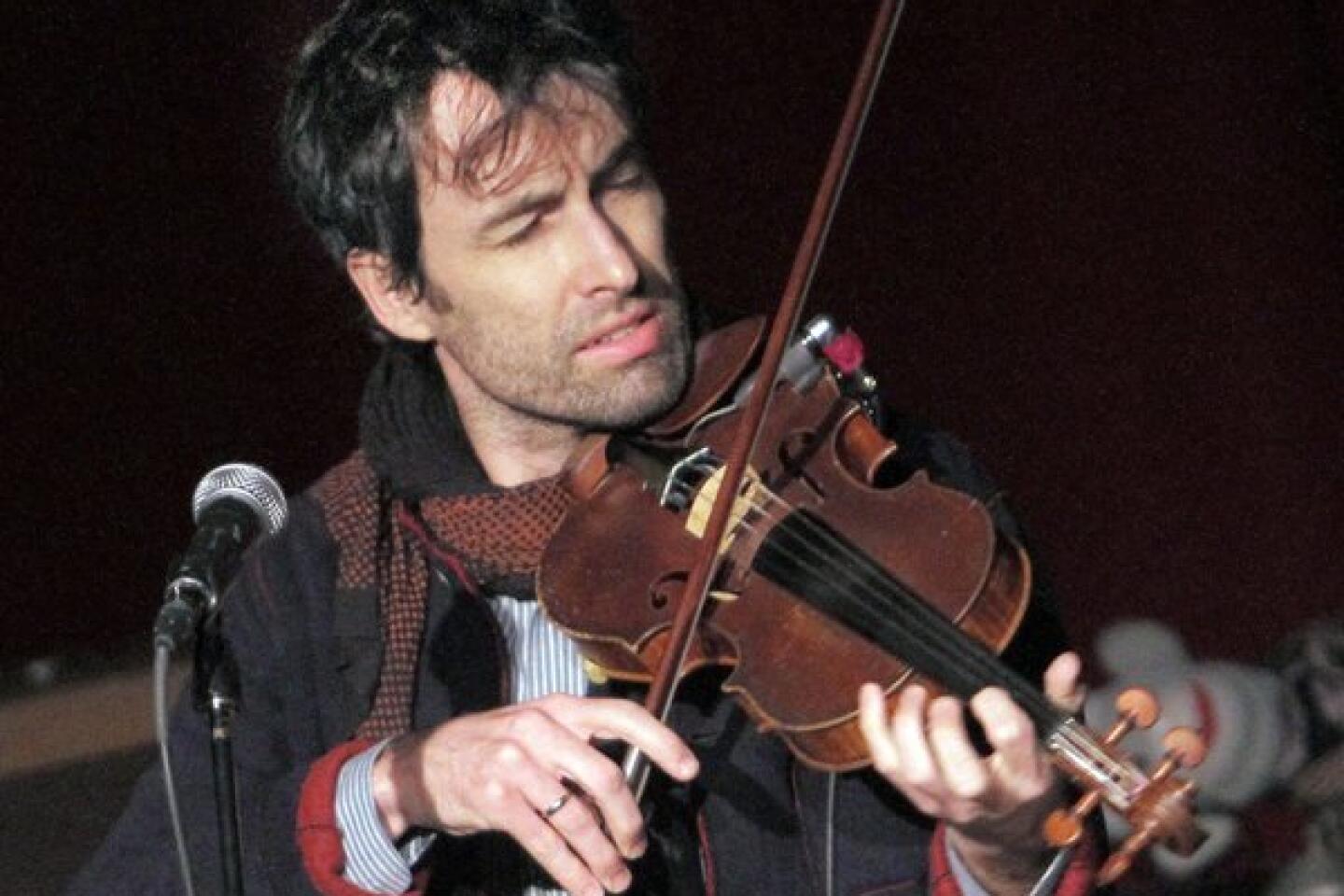Album review: Arcade Fire blazes ahead on ‘Reflektor’
Arcade Fire has certainly found itself on a strange perch with its new album, “Reflektor.” The last time the Montreal-based group made a record, “The Suburbs,” it did so as an acclaimed indie band — not a Grammy album of the year-winning act on the verge of becoming a household name.
“Reflektor” accepts the challenge that comes with millions of ears, eyes and lenses aimed at it but does so by taking listeners on a journey unlike any they’ve taken before. Its most confident and experimental yet, “Reflektor” features songs steeped in punk, dance rock, disco, reggae and noise, and themes ranging from love in the Digital Age to faith amid profound tragedy.
But the album can be best described using a line from one of its most striking songs, “Here Comes the Night Time”: “A thousand horses running wild in a city on fire.” Big, brash, percussive and bass heavy, the band gallops through its fourth album, taking only occasional breaks to cool off.
PHOTOS: Iconic rock guitars and their owners
Produced by the band along with James Murphy (LCD Soundsystem, DFA) and longtime collaborator Markus Dravs, “Reflektor” recalls the Rolling Stones’ “Some Girls,” Talking Heads’ “Remain in Light,” Beastie Boys’ “Paul’s Boutique” and Radiohead’s “Kid A” — records from established artists intent on packing more percussion and influences into an already big sound. Attention firmly grabbed, these albums suggest, let’s hit the dance floor and shake it.
Are they abandoning rock? Not so much as trying to mold it to fit their shifting curiosities. The genre’s most prominent big-ticket purveyors these days mostly put new gloss on old forms, whether the Black Keys’ hard rock, Jack White’s various bluesy endeavors, Muse’s epic art rock, Foo Fighters’ and Kings of Leon’s gung-ho anthems or Coldplay’s guitar pop. Arcade Fire, by comparison, is questioning its rockist reflexes.
Singer Win Butler confesses to the listener that he’s not sure he likes rock ‘n’ roll anymore — then he moves into “Normal Person,” one of the album’s most rocking songs. Twin pieces “Here Comes the Night Time” parts I and II offer yin-yang takes on the joys and perils of the night life.
PHOTOS: Daughters of rock stars
The record is at times so dubby and echoed that it feels channeled through the smoke of Lee “Scratch” Perry’s ganja, with bass lines transported from 1974 Kingston. The band’s most rhythmic album yet, it draws on co-founder Regine Chassagne’s Haitian heritage as much as it does Butler’s more rockist leanings. “Here Comes the Night Time 2” features a stuttering reggaeton beat and a roots-reggae guitar — but still sounds like Arcade Fire.
Genre jumping aside, it’s the patterns as much as the riffs that are beguiling here. Fans of frantic rhythms, noise of unknown origin and meandering structures will find much to love. “Awful Sound (Oh Eurydice),” a minor-key ballad, features a beat that moves with the frenzied precision of a caterpillar crossing corduroy. A magical, aspirational song unlike any I’ve ever heard, it’s been soundtracking the psyche nearly nonstop for the last 72 hours. Near the end, as Butler and band move into wordless “la la las,” a graceful guitar line sneaks in with a lovely wail, one that carries the song to its conclusion.
These moments, the kind that you want to experience repeatedly, are many. Myriad eight-bar internal miniatures hit the eardrums with joyous surprise. The itsy piano solo in “Here Comes the Night Time 2” pokes out a melody before dotting out like oblong ellipses. “Flashbulb Eyes,” the album’s most experimental track, seems to soundtrack some mystical ritual. “Joan of Arc,” a song of pure devotion, is lovely throughout but takes flight over three minutes in, when it drifts into some weird new realm.
PHOTOS: Unexpected musical collaborations
At 75 minutes, the record’s an investment, especially if you’re not down with being included in the album’s many us-versus-them scenarios. As has long been the case, the band’s lyrics often rely on the first-person plural “we,” as if the listener is a member of some amazing, and unfairly ostracized, secret community.
Whether Butler’s singing to some unfocused “you” or speaking for many on “Reflektor,” inclusiveness reigns. “They’re walking around, head full of sound, acting like we don’t exist,” he sings on “We Exist,” a song about outcasts.
“I gotta know, can we work it out?” he wonders on “Afterlife,” one of the album’s most thrilling tracks. “We’ll scream and shout ‘til we work it out,” he then declares, a rational man lost in an overwhelming moment, unsure but moving forward. “Can we just work it out? Scream and shout ‘til we work it out?”
He needn’t have wondered. Throughout “Reflektor,” Arcade Fire definitively answer the question with a great big — and all-inclusive — “yes.”
----------------------------
Arcade Fire
“Reflektor”
(Merge)
4 stars
More to Read
The biggest entertainment stories
Get our big stories about Hollywood, film, television, music, arts, culture and more right in your inbox as soon as they publish.
You may occasionally receive promotional content from the Los Angeles Times.



